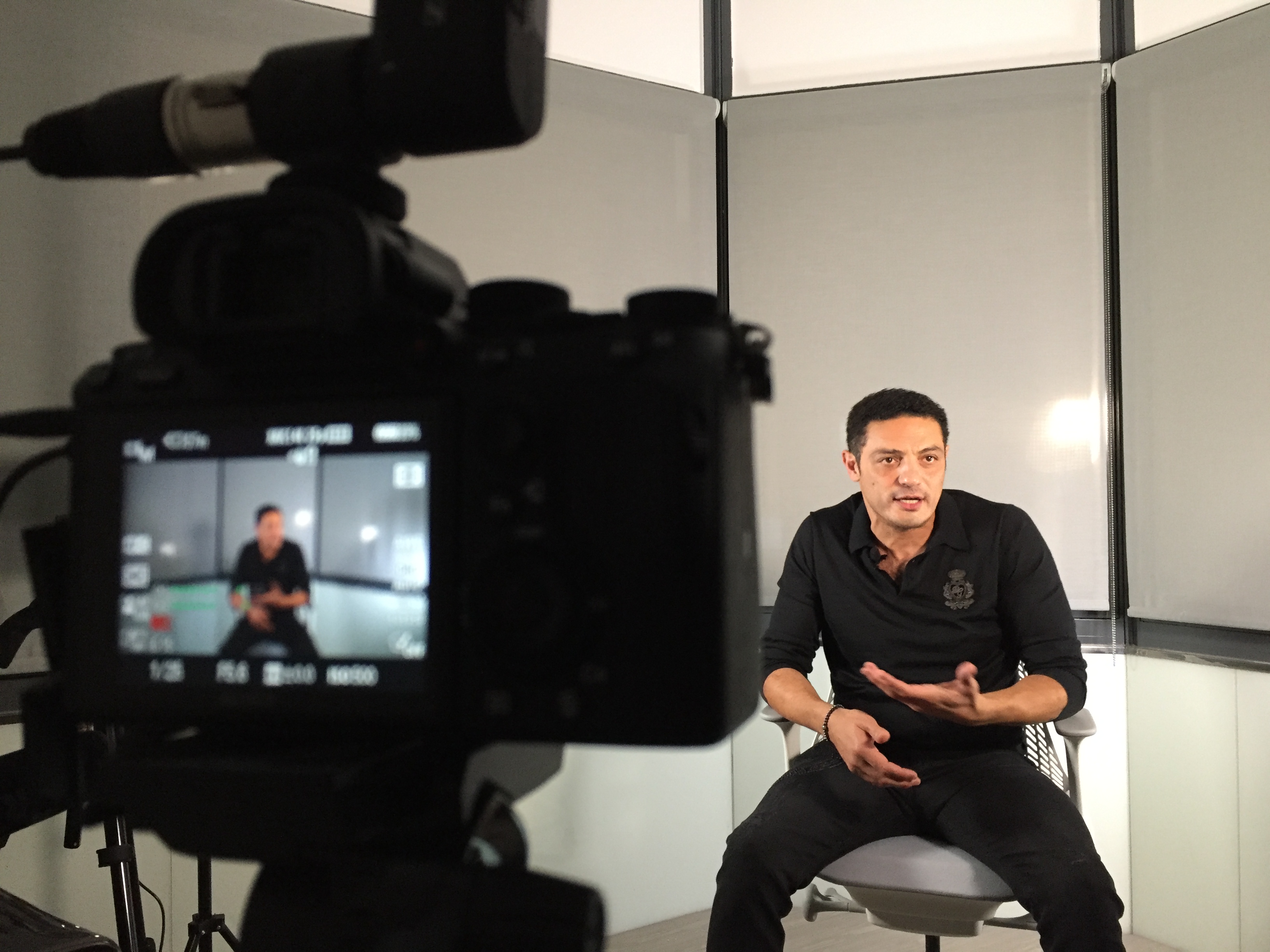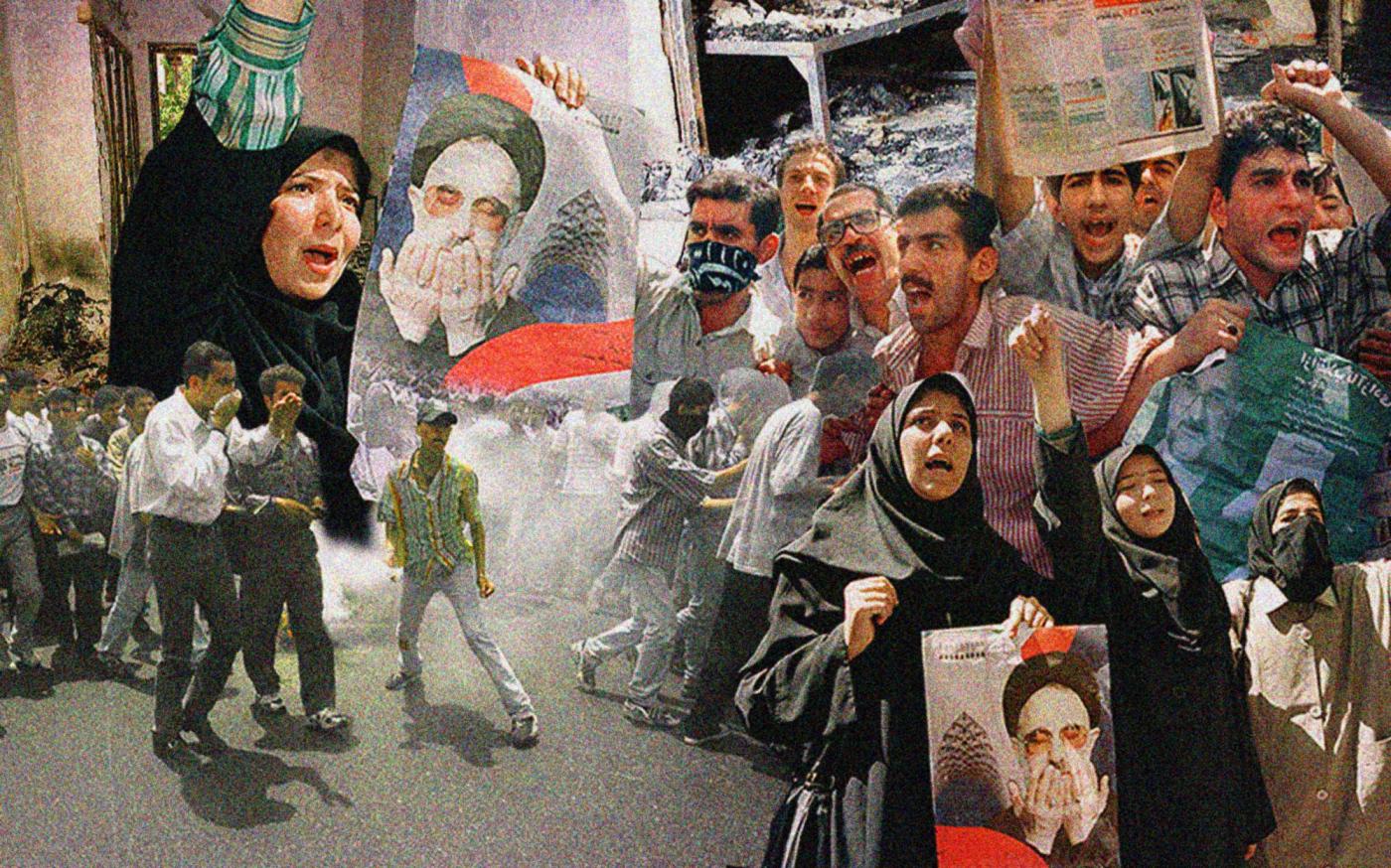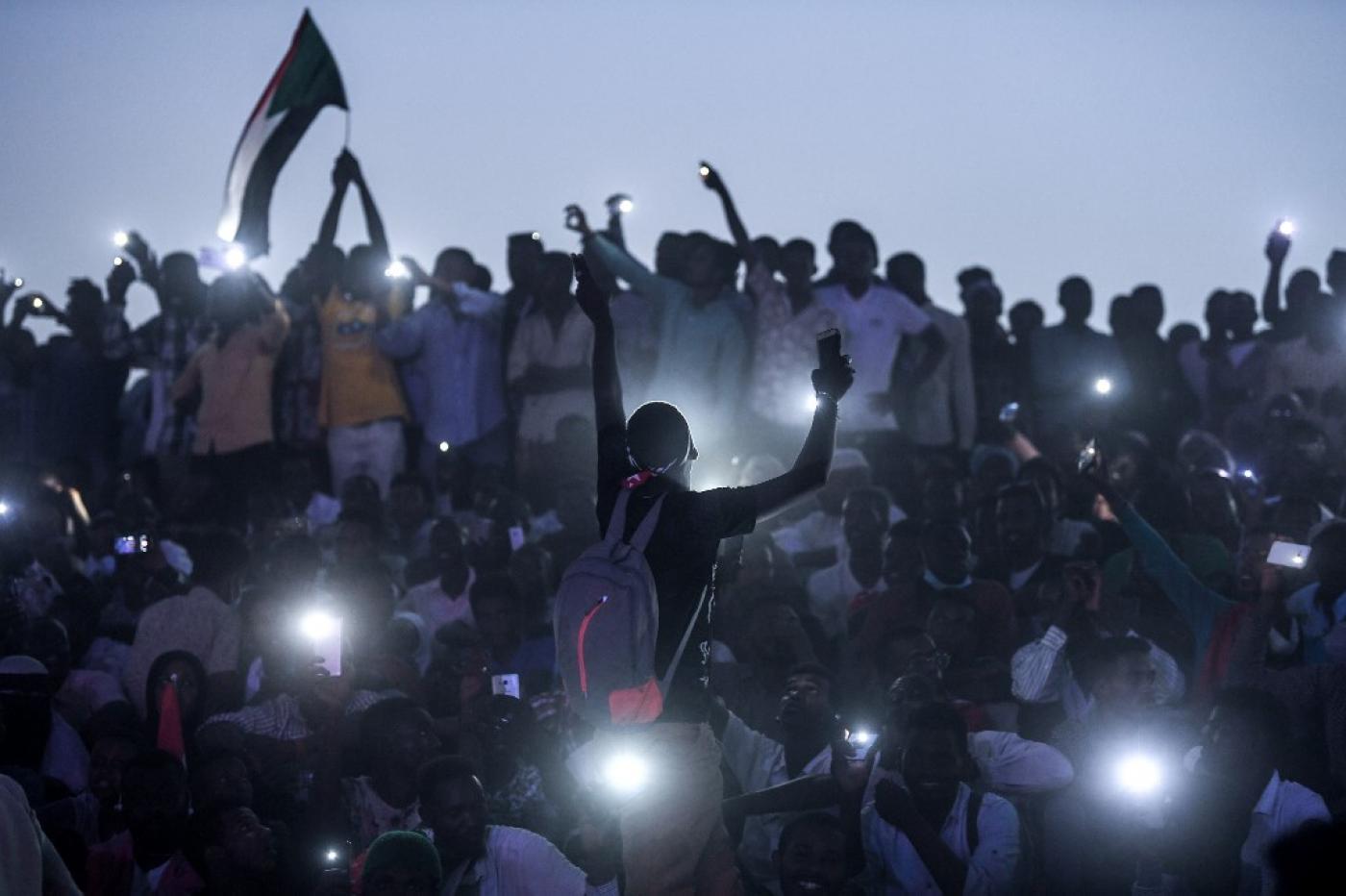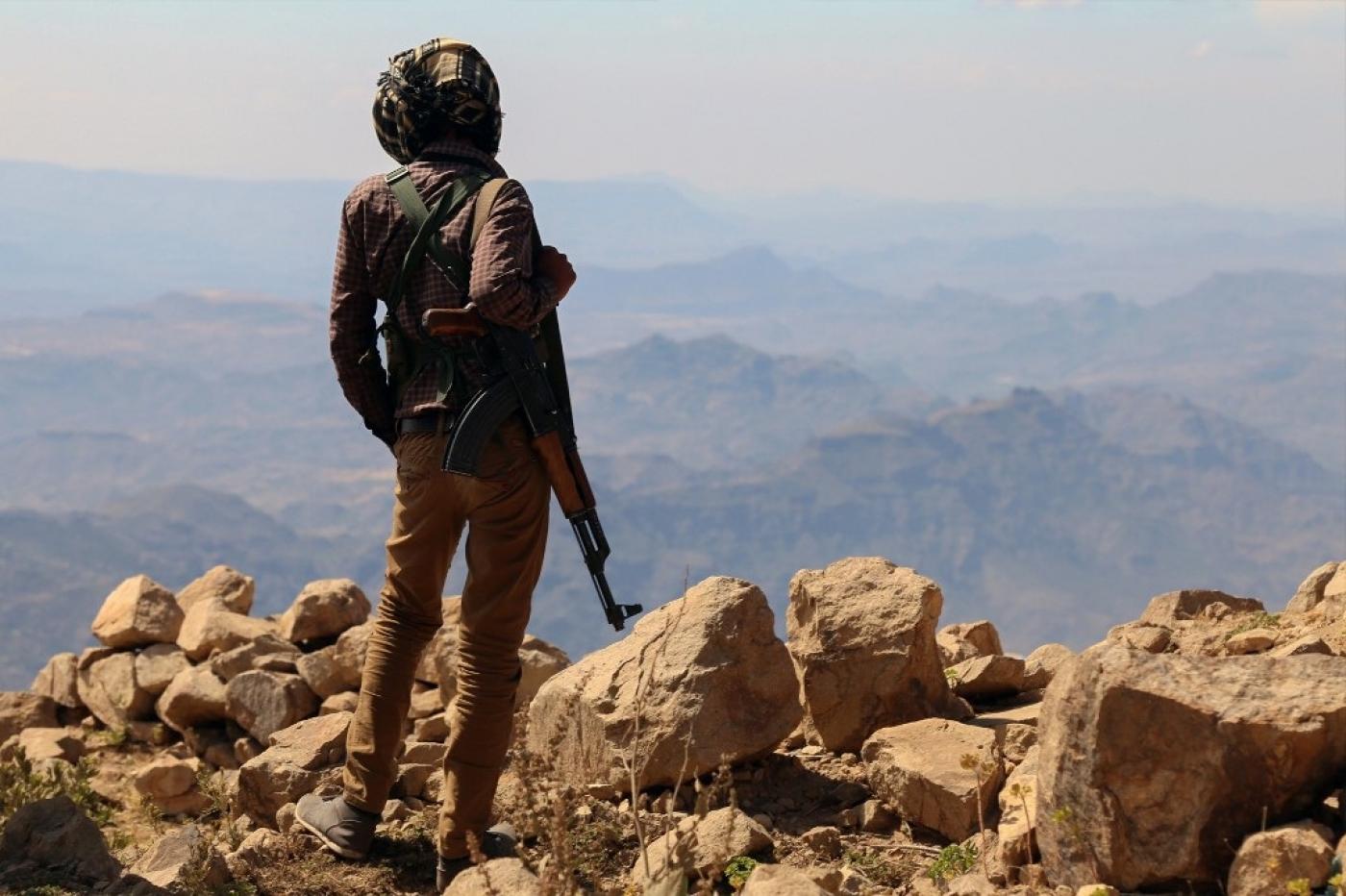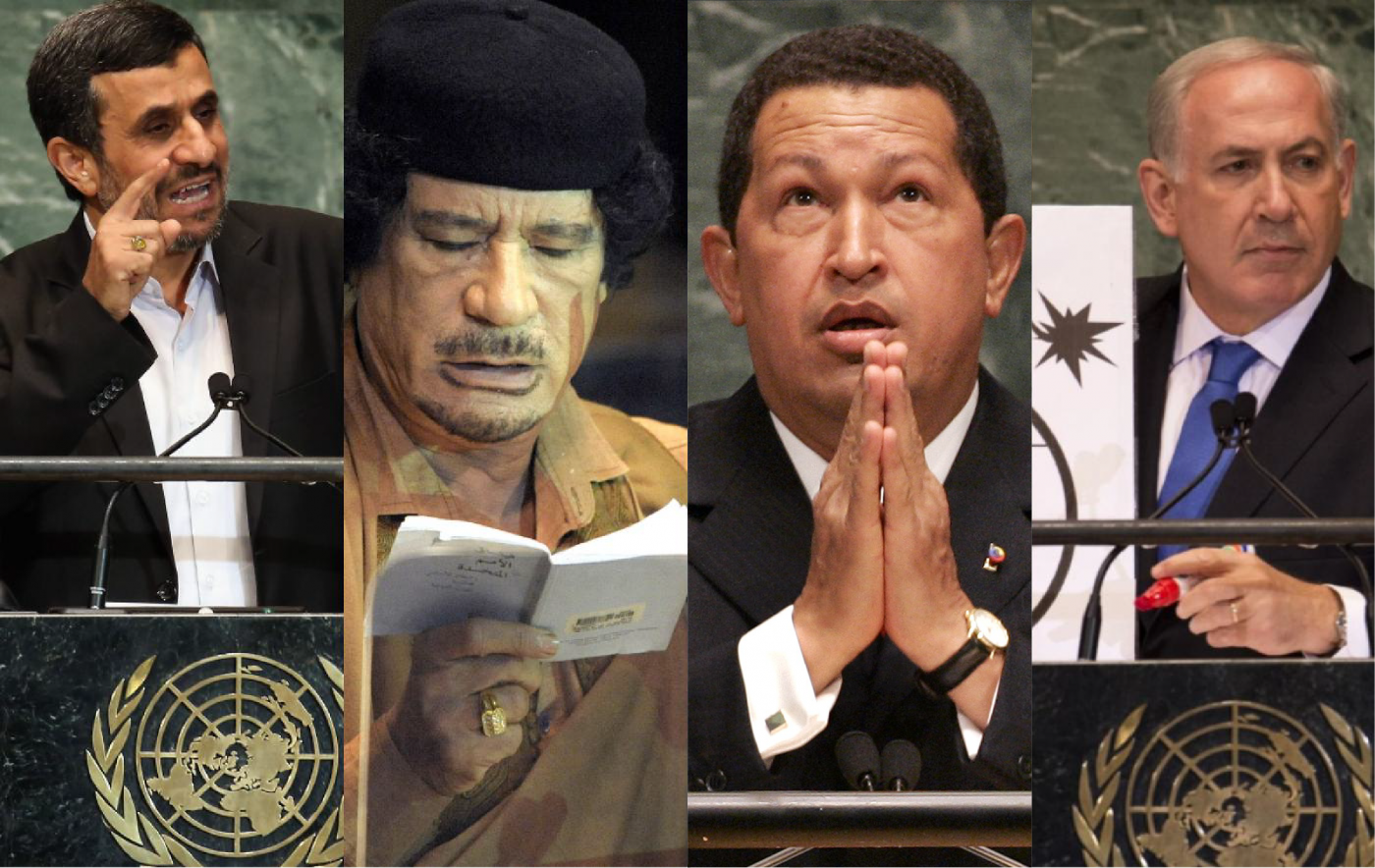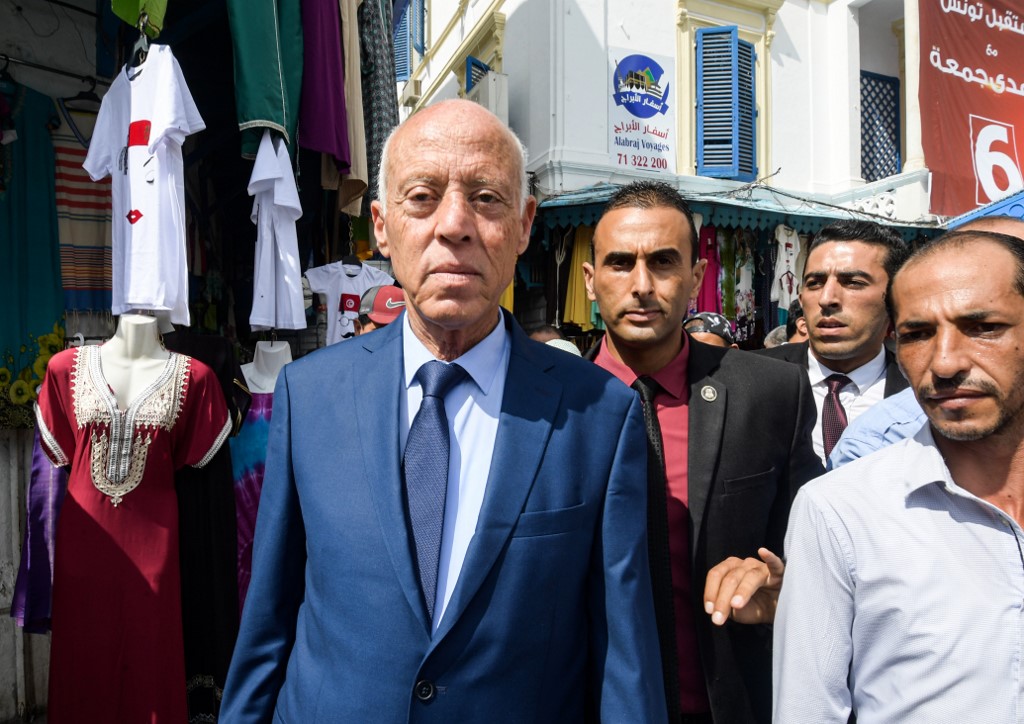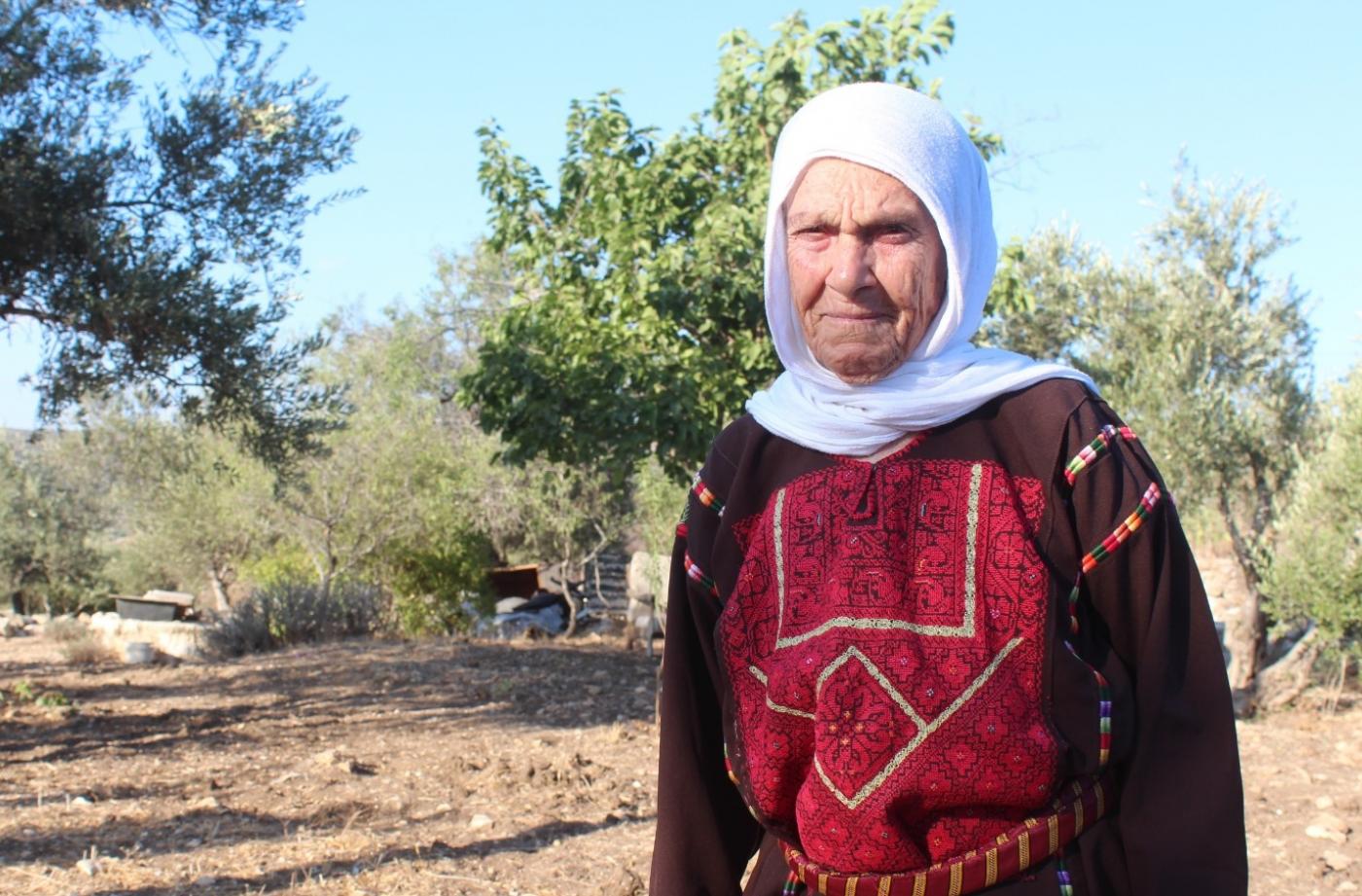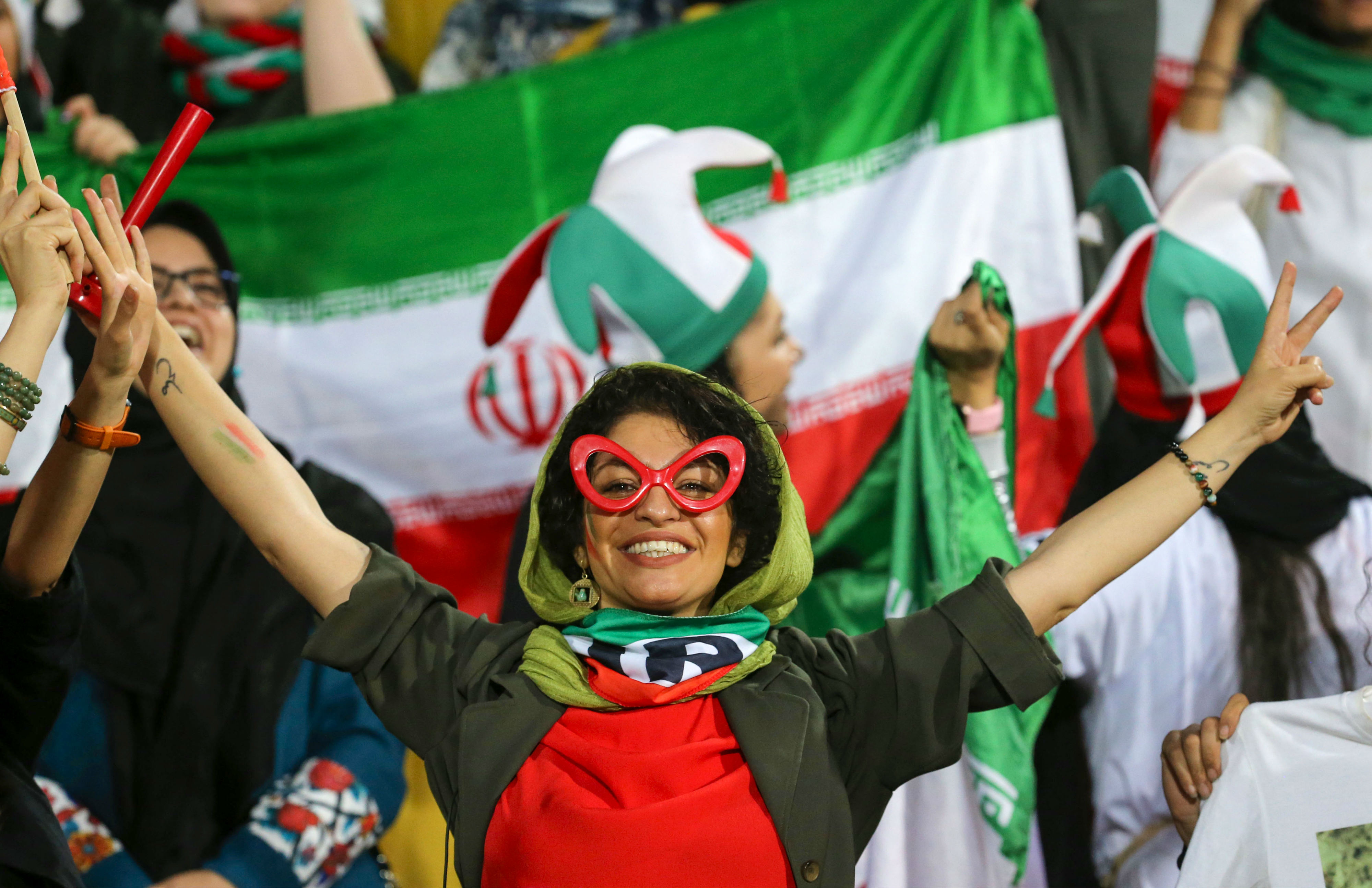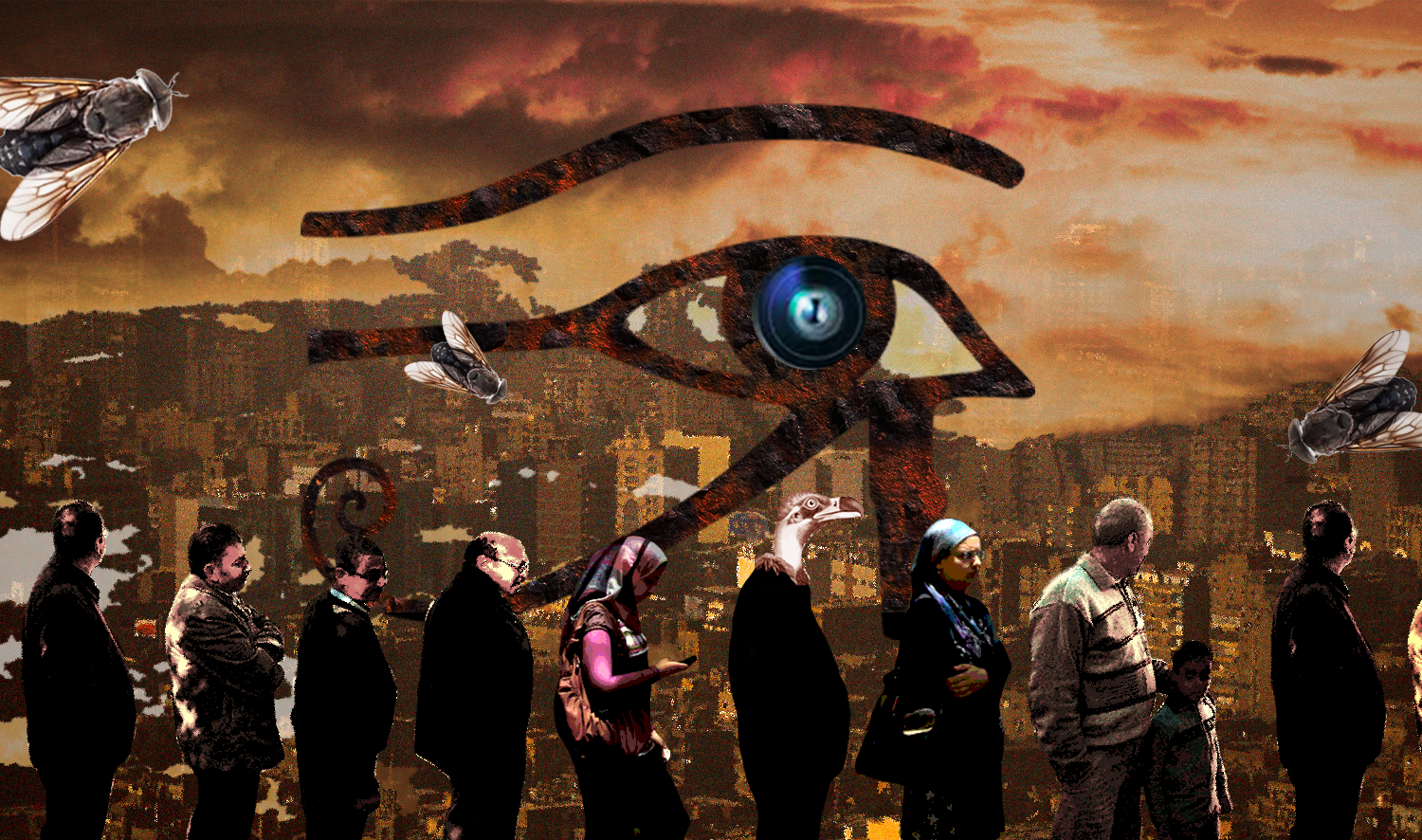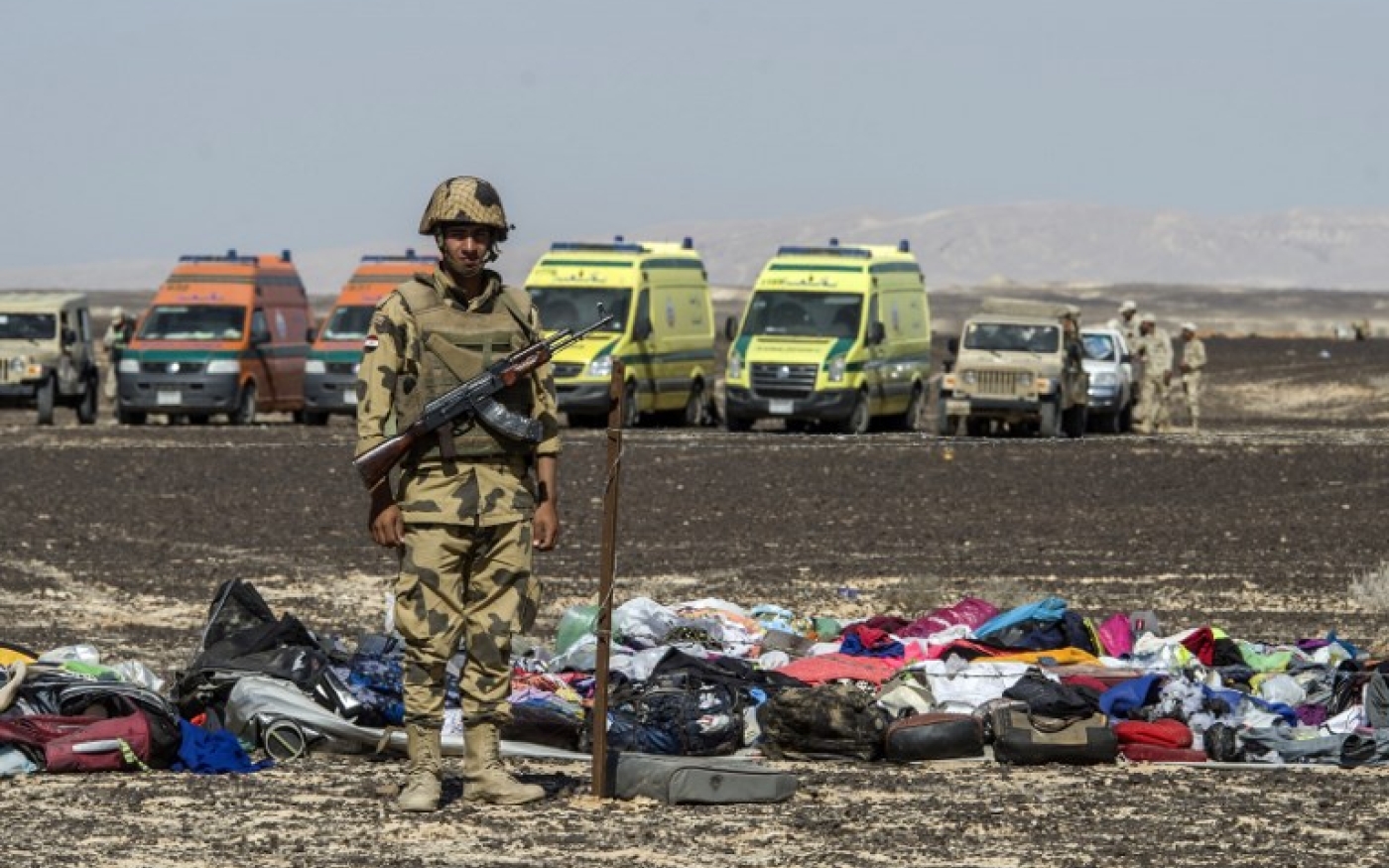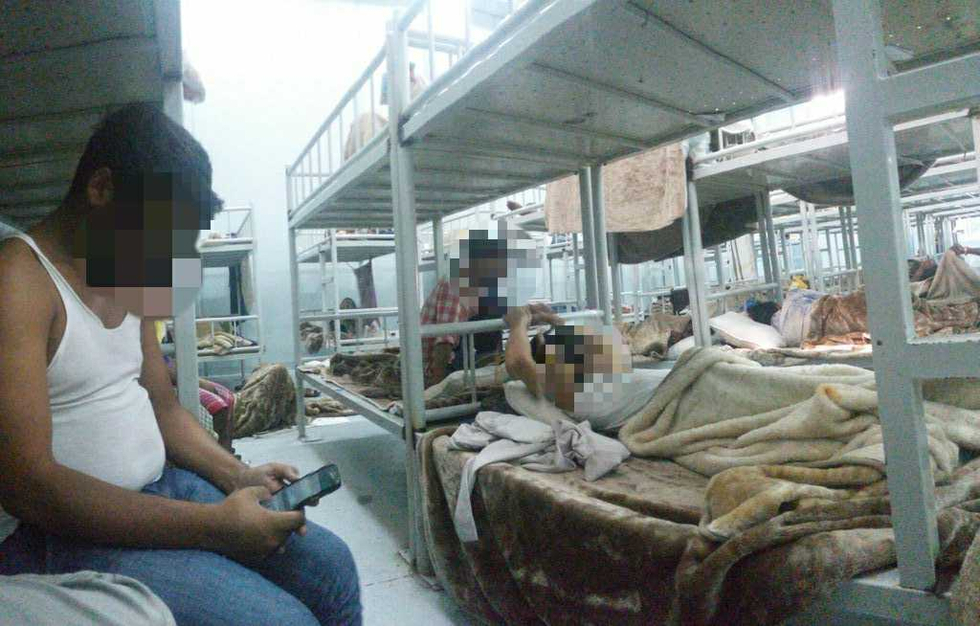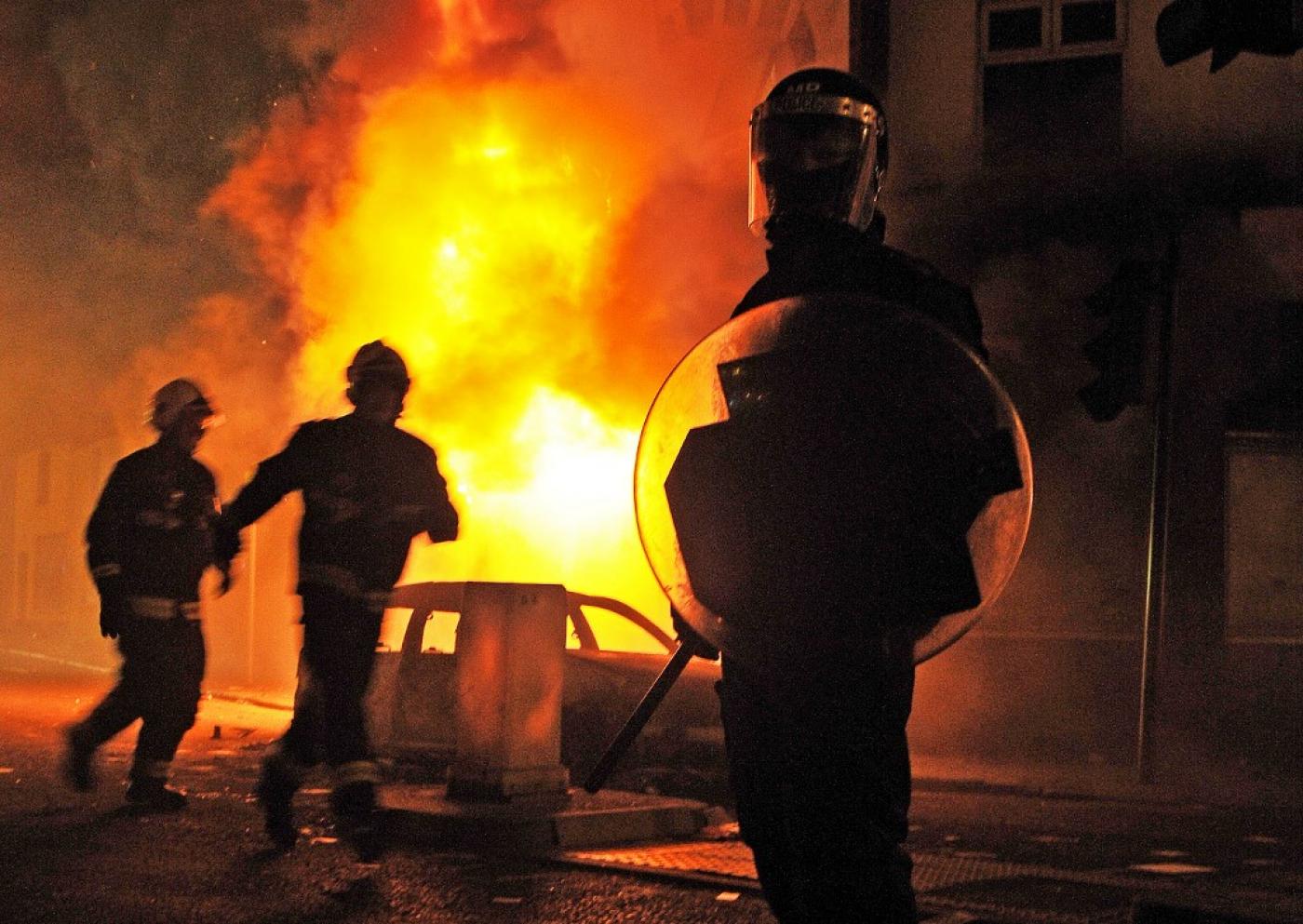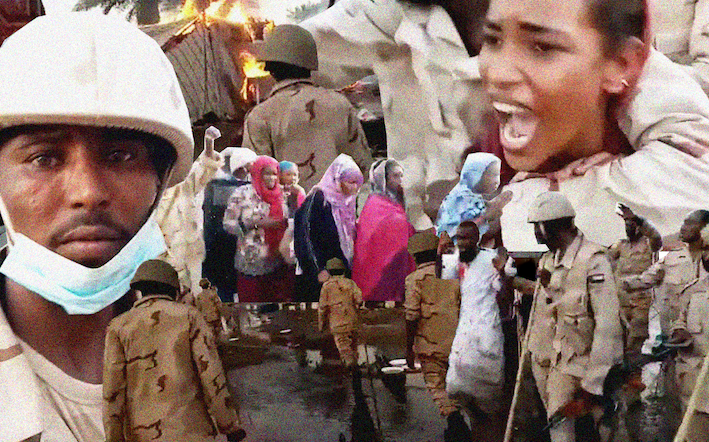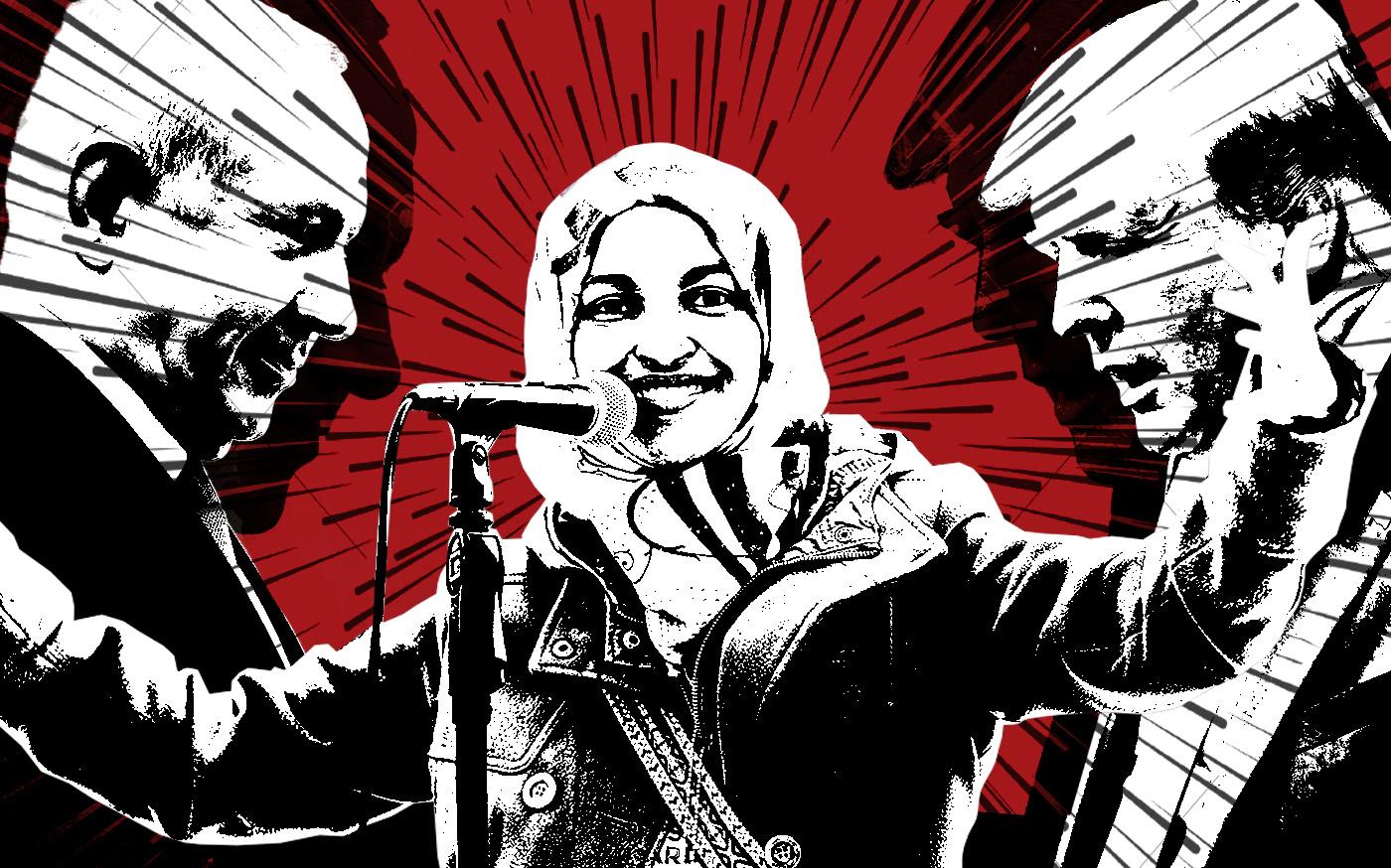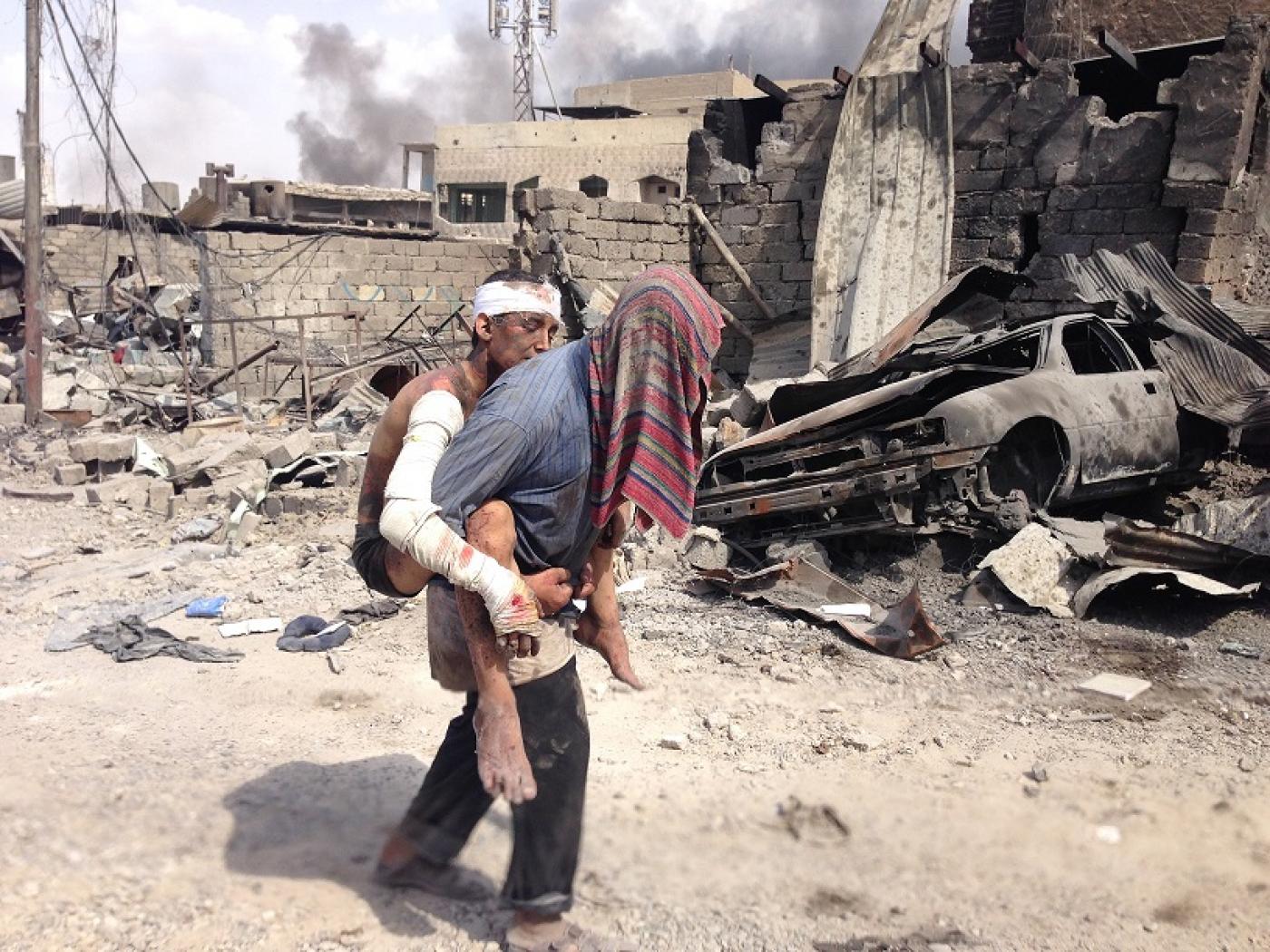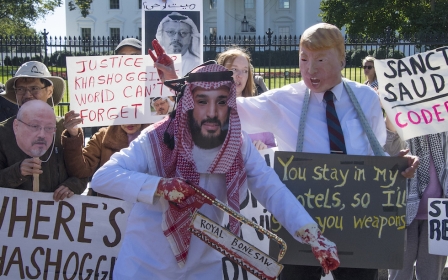Middle East Eye's picks of the year 2019

It's never boring in the Middle East, but 2019 was an epic year even by the standards of the region.
Longstanding rulers were overthrown in Algeria and Sudan, while Iraq, Iran and Lebanon have seen ongoing demonstrations against corruption, unemployment and sectarianism. In Yemen and Syria, years-long wars raged on.
Meanwhile, artistic and political-cultural expression flourished in the region, with activists daubing the walls and shaping politics from a grassroots level.
With all this in mind, Middle East Eye's staff have picked their favourite articles published by the website in the past year:
Stay informed with MEE's newsletters
Sign up to get the latest alerts, insights and analysis, starting with Turkey Unpacked
Nadda Osman - Multimedia Journalist
Mohamed Ali: Face-to-face with Egypt's most-wanted man
by Mohamed Hassan
"I would never apologise to the Egyptians. I've sacrificed for them. When I entered the army, how old was I? I was 30 years old. How can a 30-year-old understand what corruption is, and that it's rife within the army? How am I supposed to understand this?"
The standout piece of the year for me was this account of meeting the insider-turned-whistleblower, Mohamed Ali, in a secret location in Spain. MEE managed to get the first exclusive interview with Ali, who exposed ongoing Egyptian government corruption at a time when any form of criticism or dissent was stamped out in the country.
The interview came just a month after Ali called for protests across Egypt demanding that President Abdel Fattah el-Sisi step down, and gave real insight into the man himself and what it was like to meet him first hand. This was a really interesting read that revealed more about Ali, his frustrations with Sisi and the government's inner workings.
Chris True - News Editor
The Yazidis of the Caliphate's 'last breath'
by Inès Daïf
"During four years, I was sold every three months, locked in rooms, handcuffed, locked in car trunks, raped. Once, my children were taken away for two months."
Translated from the original French, this article powerfully retold the harrowing experiences of captured Yazidi girls and women who had been forced to become sabayas (sexual slaves) inside Islamic State's so-called Caliphate.
The article, reported from the city of Hasakah in northeast Syria, also points out that many of those raped fell pregnant and now, despite being free, are too scared to reveal their identity for fear of the rejection that their children born of the "horror" might experience.
Chloé Benoist - News Editor
Iran’s 1999 student protests: The hot summer that shook Tehran
by MEE Correspondent
"All the streets and alleys leading to the main dormitory complex of the University of Tehran were blocked by riot police and armed militias. As I got out of my parents’ car to continue my path on foot and sneak into the complex, the last thing my father told me was: 'Don’t get yourself killed for nothing.'"
A powerful mix of personal recollection and historical analysis on the 20th anniversary of the July 1999 demonstrations in Iran, this was one of my favourite articles that I had the honour of editing this year.
As 2019 was marked by landmark uprisings across the region, the writer - who could not publish under their own name for safety reasons - captured the energy of a lesser-known popular movement whose impact spanned far beyond the five days during which students took to the streets of the Iranian capital.
Alex MacDonald - Journalist
'We failed many times': How Sudan's protest leaders seized their moment
by Mohammed Amin
"The uprising has rapidly expanded in all directions. That was a real moment of change for our movement, from a movement demanding change to one raising more radical political demands."
Following years of brutal counter-revolution, 2019 saw the people of the Middle East once again rising up against corrupt, autocratic compradore rulers, demanding social justice and democracy. Lebanon, Iraq, Algeria and Sudan saw mass demonstrations that often led to brutal repression from the state authorities, but which have continued despite the severity of the crackdown.
The overthrow of Omar al-Bashir, after 30 years in power, was a particularly dramatic moment. Mohammed Amin's reporting for Middle East Eye was right at the heart of the revolution and captured the optimism, passions and fears of the activists leading it.
Ian Cobain - Senior Reporter
'I curse myself': Yemeni mercenaries say their Saudi fighting days are over
by MEE Correspondent
"I am cursing myself every day for joining the battles with Saudi Arabia to defend its borders from the Houthis. But it was not only my mistake. It was also the bad economy that made us do it.”
One of my favourite Middle East Eye articles of 2019 was this piece about economic conscripts to Saudi Arabia's war in Yemen. It cut through some of the many complexities of the conflict to show how men are being compelled, reluctantly, to take up arms simply to feed their families. Incisive, humane war reporting.
Élodie Farge - French Editor
Reading, writing and racism: 'Nation-state' law now official Israeli curriculum
by Lubna Masarwa
“They want to teach our children that Jews are the rightful owners of this land, and that we are here as guests, that as Arabs they do not have the right to live in equality with Jews.”
I chose this piece, because it is one of the most shocking reports that I've read on the discriminatory treatment by the Israeli state of native Palestinians, who are Israeli citizens.
Now that the so-called "nation state" law has become a compulsory topic on the curriculum, Palestinian children in Israel are taught that they are second-class citizens, that they are “less than a Jewish citizen” – a harrowing measure targeting the identities of young Palestinians, and one which the international community failed to denounce.
Rayhan Uddin - Associate Social Media Producer
Six memorable Middle East moments from the UN General Assembly
by Ali Harb
"'The red line should be drawn right here,' said Netanyahu, his marker screeching as he dragged it back and forth near a line marked 90 percent, 'before Iran completes the second stage of nuclear enrichment necessary to make a bomb - before Iran gets to a point where it's a few months away or a few weeks away from amassing enough enriched uranium to make a nuclear weapon.'"
This piece was a delightful highlights reel of historic and hilarious moments from the UN General Assembly. From Hugo Chavez calling George Bush “the devil” to Netanyahu’s literal red lines on Iran’s nuclear threat, the annual gathering rarely fails to deliver an iconic speech (or three).
Picking out the speeches of six leaders, including some who are still in power and some who have died, Ali Harb takes us on a journey through the unpredictable and ever-changing Middle East landscape.
Daikha Dridi - French Editor
Kais Saied : a radical democracy project for Tunisia
by Thierry Brésillon
"With the revolution, they opened a path, but then they were taken hostage by the political divisions. The parties are outdated forms. They have kept the same speeches for 40 years. We must find the path traced by the young, but without a new thought, we cannot establish a new system. "
This article on Middle East Eye's French site explains how and why both the international and Tunisian media completely failed to predict the outcome of the Tunisian presidential election. A great piece of informed, investigative journalism.
Lubna Masarwa - Israel/Palestine Bureau Chief
Rashida Tlaib's family disappointed but not surprised by Israeli ban
by Shatha Hammad
"I am so proud of her. I prepared the arrangements for her high school graduation celebration, then her undergraduate, and today we will celebrate her election to Congress."
A simple request by a grandmother to pick figs with her granddaughter, crossed by the brutal decision by Israel to ban her from entering her homeland - a microcosm of the reality of the Palestinian people's daily lives.
Mustafa Abu Sneineh - Journalist
How to go vegan and stay vegan in the Middle East
by Nada Elbarshoumi
"After reading a harrowing tale about a farmer slicing off the snout of a live pig ... I knew I would never eat meat again."
I read Nada Elbarshoumi’s piece two days after watching Netflix’s The Game Changers documentary about top athletes on plant-based diets. Now, after eating vegan for a month and with B12 vitamin mouth spray on my desk, I can relate to Elbarshoumi’s journey into the world of vegetables, pulses, and tofu.
Her article is rich with notes and references to plant-based blogs and YouTube channels from the Arab world, accompanied by Elbarshoumi's personal story of discovering this brave vegan world during her time studying in England.
A vegan diet is not for everyone, she tells us, as it takes courage, patience and imagination to decide what to eat. But it is healthy and environmentally friendly, and if you are from the Middle East, this is what people ate before the introduction of fast-food chains and their hamburgers. A plant-based diet hasn't stopped athletes from being the best in their field, which was shocking news for me. Lionel Messi, the Barcelona striker who broke the record by winning the best player in the world award six times, is apparently a vegan!
Happy reading, and enjoy your salad box!
Daniel Hilton - Senior News Editor
'It was unforgettable': Iranian women rejoice as stadium ban comes to an end
by Rohollah Faghihi
“During the match I didn’t sit, for even one second, and we kept cheering nonstop. And, of course, we brought with ourselves some magical luck, because we scored 14 goals.”
Let’s be honest, news can be a bit miserable. So that’s why I’ve chosen this story by Rohollah Faghihi on Iranian women finally being allowed to watch a game of football in a stadium. No official law has restricted female supporters from Iranian games, but that hasn’t stopped authorities from locking them out.
That left women trying to sneak into matches dressed as men, with many arrested and prosecuted for doing so. Sahar Khodayari, a 19-year-old commonly known as the Blue Girl, was so distressed by the experience she set herself on fire outside a court in September, later dying.
In this piece, though, everyone sounds so happy and positive - somewhat rare for a 2019 news story!
Nick Hunt - Managing Editor
Apocalypse now: Why Arab authors are really writing about the end of the world
by Lina Mounzer
"The general narrative has it that Arab writers, disillusioned by the failures of the Arab Spring and the renewed plunge into disorder and authoritarianism, have spawned a new literary movement of late, turning to speculative fiction - dystopian in particular - to make sense of the nightmarish present."
In February 2019, Middle East Eye rolled out Discover, a fresh features showcase with a different perspective on MENA and related diaspora: content has included how to plan an Arab-American wedding that will please everyone (except you), the best YA authors to read and a recipe for every day of Ramadan.
Possibly my favourite was Apocalypse now: Why Arab authors are really writing about the end of the world by Lina Mounzer, which gave smart and pointed insight into the rising profile of dystopian Arabic fiction, offering a few reading ideas along the way (check out Ahmed Naji’s Using Life and Ahmed Saadawi’s Frankenstein in Baghdad). And Aaya al-Shamahi’s bizarro illustration was the perfect complement.
Dania Akkad - Senior Investigations Editor
'Sinai is our Vietnam': Horror stories Egyptian soldiers tell from the frontline
by MEE correspondent
"We saw the worst of what people can do to each other, and saw how conscripts are cheap lives. Some people were fine with it, but for me something in me is not the same."
How many stories have you seen with the voices of conscripted Egyptian soldiers, serving in Sinai, talking about their experiences? Exactly. And that's why, even though we can't name the journalist who wrote this story in order to protect his safety, I wanted to highlight it.
The shocking stories these soldiers told have stuck with me throughout the year - how they were left without sufficient equipment or training, had to hide their tears at night and learn to become bullies just to make it through for a fight they weren't sure was worth it.
At the time it was published, more than 1,500 security personnel had already been killed in action, along with hundreds of civilians. Thousands more have been displaced by fighting. What will be the long-term legacy of this battle?
Kaamil Ahmed - Journalist
Rohingya detainees go on hunger strike to fight Saudi deportations to Bangladesh
by Areeb Ullah
"One old man who took part in the hunger strike has already been taken to the hospital. We don't know how many more days we can last. They are pressuring us to eat. Please do pray for us."
This news report and the series it was a part of revealed the struggle of Rohingya refugees imprisoned in Saudi Arabia: the conditions they are kept in, how they are deported, and the overall extent of their situation.
Simon Hooper - Head of Investigations
'Mind control': The secret UK government blueprints shaping post-terror planning
by Ian Cobain
“This job has changed significantly from planning for organic, people responses to tragedy, to being told: ‘We would like the people to do that, how do you get them there?' A lot of the public’s responses are spontaneous, of course. But a lot are shaped. The [British] government doesn’t want spontaneity: it wants controlled spontaneity.”
Journalism at its best is a critical discipline that questions and challenges assumptions and dominant narratives and makes audiences look at the world in a different way.
This is an extraordinary article, revealing how social media and ostensibly spontaneous outpourings of public emotion are being harnessed to shape the public’s response to harrowing events in a way that diverts its attention from difficult questions about government policy. After reading this, one can never look at an “I heart” poster in the same way again.
Areeb Ullah - Journalist
'They felt victorious': How Sudan's militiamen filmed their deadly assault on protesters
by Kaamil Ahmed
"They filmed all their actions - including raping women, according to sexual abuse victims. They know they are not accepted and not seen as part of this revolution and it was their chance to take revenge."
Open-source investigations is the future and this piece encapsulates that direction. The violent removal of peaceful protestors by troops linked to the infamous Janjaweed marked a turning point in the Sudan protests.
Kaamil Ahmed's important reporting was the first time images, posted by the troops who perpetrated the atrocities, were put together and showed how the massacre unfolded in Sudan.
David Hearst - Editor-in-Chief
How Ilhan Omar is changing the way Americans talk about Israel
by Azad Essa
"She brings universal values of equality and justice to everything she addresses. She is consistent. She doesn’t single Israel out, but because of her identity she gets singled out."
I found Azad's profile of Ilhan Omar to be very insightful and painted an accurate picture of a very controversial figure.
Joe Gill - Chief Subeditor
Savage 'bastard' or US stooge? Iraqi victims still have questions about Baghdadi's death
by Tom Westcott
"I don't care at all, really," said Mosul resident Abdulrahman, 21, who lost his mother, father and younger brother in a US coalition air strike on three family homes in Mosul in January 2017. "Baghdadi's a bastard, and he was going to die eventually, so his time had come. I'm slightly happier that the world will be way better without his ass in it."
There was plenty of coverage of the death of Islamic State leader Abu Bakr Baghdadi in November 2019, but Middle East Eye's Tom Westcott, a veteran reporter on the war against IS, found a fresh angle.
Talking to the Iraqis who had battled IS in Iraq between 2014 and 2018, and the civilians who suffered under them, she exposed the level of distrust and cynicism that met US President Donald Trump's declaration among those who had paid in blood.
Against Trump's triumphalism, there was the view of Abdulrahman, who lost his mother, father and younger brother in a US air strike during the campaign in 2017: "I don't care at all, really. Baghdadi's a bastard, and he was going to die eventually, so his time had come." Among fighters there was disbelief and certainty that IS, as a force they saw as created by the US, would soon rise again.
Middle East Eye delivers independent and unrivalled coverage and analysis of the Middle East, North Africa and beyond. To learn more about republishing this content and the associated fees, please fill out this form. More about MEE can be found here.


